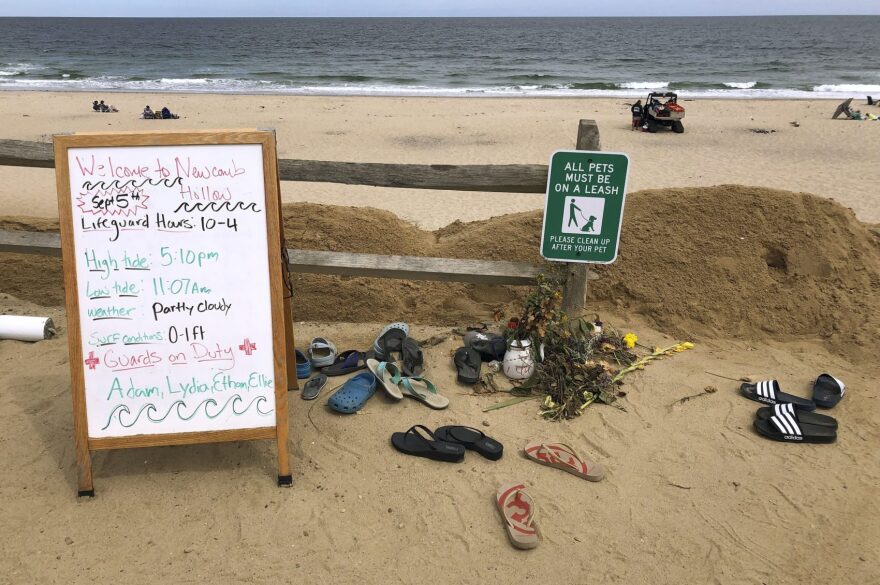On a chilly October afternoon on Marconi Beach in Wellfleet, a family visiting from Germany looks for seals just off the shore. Father and husband Bernd Matzner, from Berlin, is a recreational diver who has dived all around the world.
But he has no ambitions to dive on Cape Cod. That’s because, Matzner says, he prefers to stay away from great white sharks.
Like many others who frequent the Cape, Matzner says he’s been thinking about what towns there can do to mitigate the risk sharks present to humans.
“I guess if there are safe areas that can be protected by nets or something like that,” Matzner says, but, he concedes, “I have no idea.”
How to prevent shark attacks is a question many public safety and tourism officials on Cape Cod have been trying to answer since a 26-year-old Revere man was fatally bitten by a shark off Wellfleet last summer. Arthur Medici’s death marked the state’s first deadly shark attack in more than 80 years — and heightened fears and attention around the increase in great white sightings along the Cape.
The question about safety is one researchers at Woods Hole Group, an environmental consulting organization, has also examined.
A long-awaited study released Wednesday by the group concludes there are some steps Cape Cod communities can take to improve safety. And, according to the study, nets like the ones Matzner mentions are among the most difficult — and thus, unlikely — approaches to implement.
“With the very energy-driven, dynamic coast environment we have, they’d be very costly and highly disruptive to deploy,” says Brian Carlstrom, superintendent of the Cape Cod National Seashore, one of the groups that commissioned the study.
He says barriers also would be harmful to other marine life. Other proposed solutions study authors dismiss include: seal culling and seal contraception.
The study suggests that instead, Cape Cod can take precautions on the shore, including posting more lifeguards to watch for sharks, providing people with stop-the-bleed training and enhancing communication capabilities at beaches.
That’s a top priority for Truro Town Manager Rae Ann Palmer.
“The next thing is — if we can get it done — is to improve cellular service at the beaches,” she says. “I think that’s one of our biggest challenges.”
Palmer says the purpose of the study was to determine which solutions are feasible for the region and which aren’t.
“If we’re going to do something, we really need to know it’s going to work,” she says.
The report also recommends continuing the aggressive public awareness campaign already in place on Cape Cod.
Back on the beach with Matzner, the diver takes note of all the warnings.
“There are quite obvious signs here at Marconi Beach that alert visitors to the dangers,” he says, nodding toward several infographic signs and posters about sharks on the steps to the beach. “I think that it’s fair that this is actually a place to have a nice look at the beach and stay away from the dangers.”
No one’s suggesting staying out of the water altogether, but the report concludes there is no “silver bullet” that will 100% ensure safety should you venture into the waters.
____
A public forum with the scientists who authored the study will be held at Nauset Regional High School on Thursday, Oct. 15 at 6 p.m. Read the full report below:
This article was originally published on WBUR.org.
Copyright 2019 WBUR






